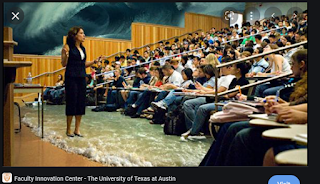One of my more prominent memories of working at Bruno’s came when I had to serve a group of mature ladies who decided that I was worth fliting with. I enjoyed being the centre of attention but the thing that struck me about that entire exchange was when one of the ladies asked “Are you a Yellow Ribbon Criminal?” When I asked what brought that on, her reply was that judging by the way I spoke, there seemed to be something wrong with the fact that I was working as service staff.
I like to think
that she was paying me a compliment. However, the sentiments that were
expressed, reflect an attitude that makes life a little harder for those of us
who have either never made it or have “fallen.” This attitude isn’t particularly
unique to Singapore but as I live here, I believe that this is an attitude that
scares many people from being able to climb back up again in “face” conscious Asia.
This is
something that will need to change on a social level for the simple reason that
the old economic order which involved working for one company in one role until
one retired in relative comfort is no longer there. Whilst this has been said for
the last thirty-years, it’s become even more prominent. The trend of industries
and roles dying overnight has only been exaggerated by Covid-19.
As with every
period of rapid change, there are bound to plenty of people who fall through and
we will need to find a way to help people get through the system. For high earners,
particularly those over 45, will have to get used to the fact that they may
never get a similarly high paying job should they lose it. What can they do
about it? The government has been pushing “life-learning” and getting people to
take on “second careers.”
However, this
may not be the path for everyone and the current thrust of the government’s
plans on life-long learning works on the premise that “careers” are like
ladders – the only direction is up or down. Whilst the principle of encouraging
“life-long learning” is right, there needs to be an understanding of the psychology
of what happens to people when they fall. As I’ve mentioned in previous
postings, I’ve known of people who held high end jobs, lost them and were unable
to pick themselves up and reached the stage where they needed their bus cards
topped up. Ask them to do a bit of “menial” work to put money in their pockets
and they won’t do it. As is said – unlike the Western world where the issue is
people trying to “game” a system designed to help the less fortunate, the
problem in Singapore is that people are not willing to game the system.
So, perhaps the
answer might be to change the approach to work and careers itself. A career path
need not necessarily be just up and down. I think of a former boss who talked about
the need to “widen” the pond instead of making it deeper. Whilst he was referring
to a business, why can’t the same be true of an individual’s career.
In my early
working life, just about everyone thought I was going to be a great “Public
Relations” (PR) person. However, I couldn’t quite make it in the traditional “agency”
system – never lasted for any agency more than a year. I did well on the PR projects
that I worked on but somehow never lasted in a “working” environment.
So, I took the
job in the restaurant to get a regular income. Interestingly enough, the restaurant
was good for my PR skills. I actually did things like crisis management, dealing
with irate customers (they ones who wanted to walk out without paying actually
paid half) and dealt with troublesome staff (enough to the owner to give me the
authority to fire the staff in question)
Ironically in
my “third” progression, into the insolvency, the skills I have learnt in PR and
were honed in the restaurant, would also come in useful, especially when one
considers that the insolvency trade involves dealing with lots of irate people.
It took a while
to look at my skills in a lateral manner. It also required understanding that I
was the same person whether I was washing dishes or trying to get CEOs
interviewed by the business press.
Believe it or not – the dude washing cups (Me at Bruno’s Serangoon)
When I look at
the official line on “second careers” and it works on the idea that a top man
in one industry should go down to the ground and start a career at the bottom
in another industry. It assumes that an engineer should he or she lose an engineer’s
job should be willing to go back to school and say, start again as an intern in
a bank.
Instead of
looking at things that way, perhaps the answer might be to encourage employees
to look at careers in a horizontal manner as well as in a vertical manner. As
for employers, perhaps they should be encouraged to start looking at how
someone who is cross trained can add value. I remember a friend of mine in the oil
and gas industry rushed tried to get his HR team to hire my colleague when he
found that she was a trained accountant from an engineering background. His point
was that he found most normal accountants didn’t understand what was actually going
on in the business because, well they only saw the business from spread sheets.
That made this colleague of mine particularly interesting.
It is, as they
say, time we get serious about reinventing jobs and the way we build careers.











